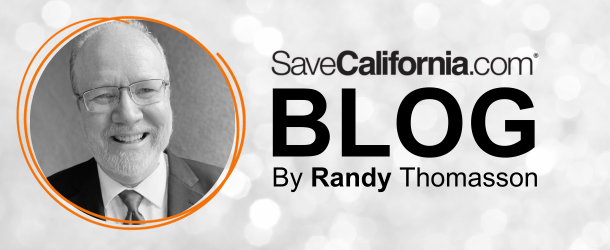After doing TV interviews in Sacramento on Wednesday, I was in San Francisco early Thursday for the big hearing on Prop. 8, the California Marriage Amendment. Outside, I greeted friends and other people and did more interviews about real marriage and what the California Constitution says. Then I entered the California Supreme Court building to watch three hours of oral arguments about “whether Prop. 8 is constitutional.”
It was very encouraging to see several hundred real marriage supporters in front of the court building and across the street. The media definitely got the message that pro-family Californians are angry at their vote on Prop. 8 being threatened by the high court. The pro-family people’s presence more than balanced the homosexual activists’ goal to dominate the media and visually lobby the judges that they are “victims” of the voters.
The bottom line of the oral arguments is this: two homosexual “marriage” judges are responding to the people’s rebuke of Prop. 8. I believe that Prop. 8 will be mostly upheld. Keep reading to understand why I’m saying “mostly upheld” versus “upheld.”
Chief Justice Ron George and Associate Justice Joyce Kennard were particularly hard on those challenging Prop. 8. It depressed homosexual activists like Robin Tyler of Los Angeles. “I didn’t hear the same courage that I heard from them last time,” she told the LA Daily News. “Of course, I also know that the Yes on 8 people threatened their jobs – that they would throw out the justices if this is overturned. I think the court was protecting itself.”
Ron George
George, the chief justice, who last year claimed that homosexual “marriage” was a “fundamental” right, this time criticized liberal attorneys for claiming that Art.1, Sec. 1 of the California Constitution guarantees the right to homosexual “marriage” when it says “All people are by nature free and independent and have inalienable rights.”
George, who’s up for reelection next year, seemed to do an about-face from his previous position. He said deriving same-sex “marriage” from the phrase “inalienable right” threatens all future ballot initiatives because anything could be called an inalienable right and used to strike down the people’s vote.
George also read verbatim from Art. 18, Sec. 3, which says “The electors may amend the Constitution by initiative.”
George said the state constitution has been amended more than 500 times, telling one of the pro-homosexuality attorneys they shouldn’t rely on the court. “Maybe the solution has to be a political one … but the fact is there have been initiatives that have restricted and taken away rights of minorities put forth by majority vote,” George said. “Maybe that shouldn’t be the case, but isn’t that the system that we have to live with unless and until it’s changed?”
Joyce Kennard
Associate Justice Joyce Kennard, one of the most liberal justices but one who has voted time and time again over the last 20 years to uphold voter rights, said she saw the latest case very different from last year’s case legalizing homosexual “marriages.” Prop. 22, struck down last year, was an initative statute (a regular law), while Prop. 8 is a constitutional amendment, above the judges and in the constitution, the supreme law of the state.
“To me, the issue presented last year in the marriage cases pertained to this court’s authority to interpret a statutory provision in light of the state constitution. Today we have a completely different issue. … We have a pretty well established body of law in California pertaining to what is or is not a revision. Those decisions do not give strong support to your position that the people couldn’t do what they did when they invalidated or disagreed with one aspect of the marriage decision. The people did not invalidate the entire decision.”
Kennard chastized the anti-Prop. 8 attorneys, saying, “As judges, our power is very limited. What I’m picking up from the oral argument in this case is the court should willy-nilly disregard the will of the people.”
Kennard was especially hard on Chris Kruger, who did a lackluster job explaining why his boss, Attorney General Jerry Brown, believes Prop. 8 is an amendment, not a revision, to the constitution, but is still “unconstitutional.”
“In your particular theory,” Kennard told him, “you rely on cases that date back to the middle of the 1800s, and my research has shown that the cases on which you so strongly rely on … have been soundly rejected. What about the inalienable right of the people to amend the constitution as the people see fit? From the beginning of our state constitutional history, the right of the people to alter or change the provision of the state constitution has been a basic right, a fundamental right — to use your term — an inalienable right. But you would have us choose between these two rights — the right that you have mentioned to this court, the inalienable right to marry — and the right of the people to change the constitution as they see fit.”
So you see how Kennard+ George + three other judges who voted against homosexual “marriages” last year = a strong majority in favor of upholding most of Prop. 8.
> Understand why the single-subject, 14-word Prop. 8, which is in only one section of one article of the California Constitution, is NOT a revision
What to do with the counterfeit marriages
Prop. 8 clearly means that that the only valid marriage licenses in California right now belong to “a man and a woman.” The text is “Only marriage between a man and a woman is valid or recognized in California.” “Is” is an absolute term that applies to past, present and future validity.
Unlike legislative statutes and statutory initiatives (regular laws), constitutional amendment do not need to say whether they have retroactive effect because they certainly and supremely do. The court’s own long-standing rules and the case law that they rely on says that if there’s any ambiguity in the text of an initiative, they should look to the ballot statements for voter intent.
Prop. 8 proponents’ rebuttal arguments in the voter information guide state, “Your YES vote on Proposition 8 means that only marriage between a man and a woman will be valid or recognized in California, regardless of when or where performed.” “Regardless of when…performed” obviously means that pre-existing same-sex marriages are null and void in light of Prop. 8.
But too many judges, who swear to support and defend the Constitution, will abandon objective, constitutional standards, and even abandon case law, if it goes against their personal biases.
Four justices spoke against invalidating last year’s homosexual “marriages”: Ron George, Joyce Kennard, Carol Corrigan and Ming Chin. Asked Chin, “Is that really fair to people who depended on what this court said was the law?”
One of the court’s most liberal judges, and the court’s only Democrat, Carlos Moreno, said he knows that Prop. 8 states that marriage “is” limited to a man and a woman, but said “I know people can argue over what ‘is’ means,” Moreno said.
“The language has to be unequivocal,” replied San Francisco deputy city attorney Therese Stewart, arguing to overturn Prop. 8. “I don’t think that’s the case here.”
Prop. 8’s attorney Ken Starr said the judges should check the plain reading of the amendment when there is a question over its meaning. If they don’t understand the complete meaning of the word “is,” he told them to look for voter intent in the voter information guide. He’s right because that’s the rule the California Supreme Court has always used.
It was in the rebuttal portion of their Nov. 2008 ballot statement that Prop. 8’s proponents wrote that passage of the amendment would prohibit recognition of past homosexual “marriages.” The California Supreme Court judges will have to discipline their hearts in order to keep their oath to judge according to the constitution and the case law that agrees with the constitution. However, in light of their comments making light of the word “is” and ignoring the rule to find voter intent in the ballot statement, I seriously doubt they will.
I wish Prop. 8’s official proponents had been much clearer in their ballot statement about nullifying the counterfeit marriages. The day for the court test has finally arrived, and not enough judges are correctly “reading” that Prop. 8 has struck down previous-performed same-sex “marriages.” Unfortunately, these days, many judges won’t follow laws unless they are so clearly written that judges can’t wiggle out of it and opine a different “interpretation.”
This is why, from now on, the text and ballot statements of initiatives (and they must be constitutional amendments to override judges) must be crystal clear. Such specificity and clarity will avoid sabotage by judges who dislike certain voter-approved initiatives, such as real marriage between a man and a woman.
It’s obvious where the court is going
I believe we’re going to see at least a 5-2 upholding most of Prop. 8. This kind of ruling would say that the people’s vote on Prop. 8 means that no same-sex “marriages” were allowed after Nov. 4, 2008, the day that Prop. 8 passed.
However, I also believe that, by the same or a greater margin, the court will leave intact the several thousand (some say 18,000) homosexual “marriages” done between June and November. Refusing to nullify these false marriages would go against the court’s long-standing rule of using the voter information guide to determine voter intent. The line “regardless of when or where performed” in Prop. 8’s ballot statement was apparently not specific enough for four judges. Waiting in the wings are two more judges — Kathryn Werdegar and Carlos Moreno — who will certainly keep homosexual “marriages” going in California if they can. Count as many as six judges who will keep the counterfeit marriages intact as very confusing role models for children.
Lastly, it was scary to hear three judges openly wonder whether they could “get the government out of the marriage business” — no more marriages but everybody would get a “civil union” instead. Horrors. The Constitution prohibits judges from legislating and “willy nilly” inventing things like this. ~ Randy Thomasson
Understand the California Supreme Court hearing on Prop. 8
> NEWS RELEASE: Constitutional answers to the court’s three questions
> 2 1/2 MIN. VIDEO: Judges’ deliberations, decision due in June
> LONG VIDEO: Three hours of oral arguments (scroll past 15-min. intro)
> LEGAL DOCUMENT: Legal brief of Campaign for California Families/Liberty Counsel
Take action: Sign our pre-written letter to help the judges to fully uphold Prop. 8



 RSS 2.0 Feed
RSS 2.0 Feed